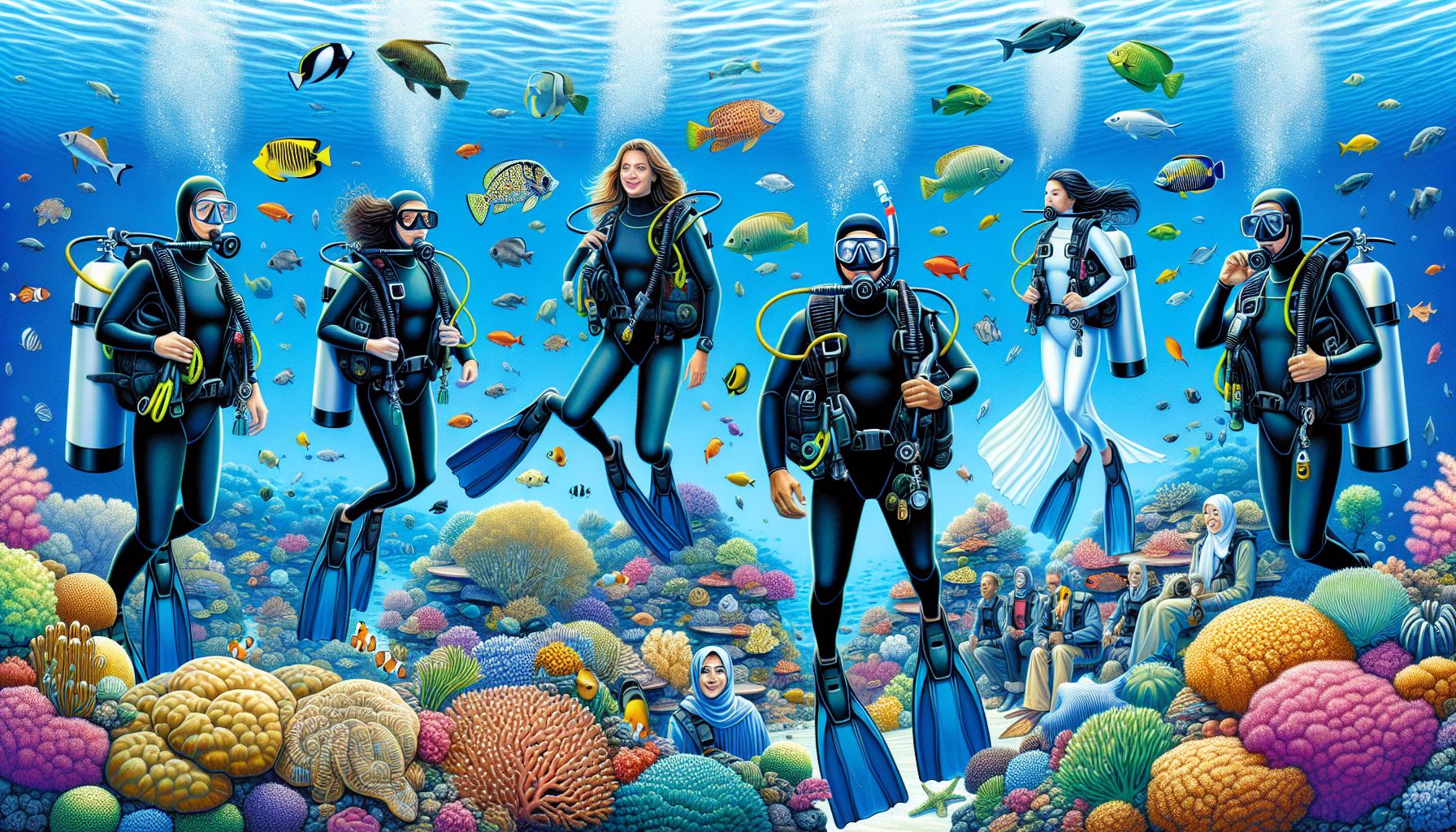Scuba diving is a thrilling activity that allows you to explore the wonders of the underwater world, come face-to-face with marine life, and discover the mysteries that lie beneath the water’s surface. The name “scuba” is an acronym for Self-Contained Underwater Breathing Apparatus, which perfectly captures the essence of this fascinating sport—it provides you with the independence to breathe underwater and explore to your heart’s content.
Understanding Scuba Diving
Scuba diving is an adventure open to almost anyone in good health and with a zeal for the ocean. It is a sport that can be practiced recreationally or professionally, with many divers choosing to specialize in areas like underwater photography, videography, or marine biology research.
The Gear
Every diver is equipped with essential gear, which includes:
- Diving Mask: Offers clear vision underwater and equalizes the pressure.
- Regulator: A device that delivers air from the tank at a breathable pressure.
- Scuba Tank: Holds the compressed gas, typically air or enriched air (nitrox).
- Buoyancy Control Device (BCD): Allows divers to manage their buoyancy.
- Dive Computer: Keeps track of depth, time, and decompression limits.
- Fins: Provide efficient movement through the water.
- Wetsuit or Drysuit: Offers thermal protection and abrasion resistance.
- Weights: Help divers achieve neutral buoyancy.
Getting Certified
Before you can dive, you must be certified by a recognized organization like PADI (Professional Association of Diving Instructors) or NAUI (National Association of Underwater Instructors). These certifications ensure that divers have the necessary skills and knowledge to dive safely.
The Experience
Diving can be a serene experience as you float weightlessly among the vibrant coral reefs, historical shipwrecks, and diverse marine life. It’s also an opportunity for constant learning, whether you’re mastering buoyancy control or identifying new species of fish.
The Benefits of Scuba Diving
Aside from the sheer joy of underwater exploration, scuba diving offers numerous benefits:
- Physical Fitness: Swimming against the resistance of water can improve cardiovascular and muscular health.
- Mental Wellbeing: The underwater environment can have a calming effect, reducing stress and anxiety.
- In Appreciation of Nature: Close encounters with marine life heighten the awareness and importance of conservation efforts.
- Social Connectivity: Divers often build strong communities, creating friendships based on shared experiences.
Conservation and Responsibility
Scuba diving also instills a sense of environmental responsibility. Divers are ambassadors of the ocean, and with this comes the duty to protect marine environments. Organizations like Project AWARE (Aquatic World Awareness, Responsibility, and Education) work with divers to conserve underwater environments through education, advocacy, and action.
Advanced Diving and Specializations
As divers gain experience, many pursue advanced certifications in areas such as:
- Deep Diving: Exploring deeper sites beyond the limits of standard recreational diving.
- Cave Diving: Navigating underwater caves, which requires specialized training and equipment.
- Wreck Diving: Investigating sunken vessels, airplanes, and even cars underwater.
- Search and Rescue: Learning to manage diving emergencies and assist others.
Scuba Diving Destinations
The world is filled with incredible diving spots, each offering a unique experience:
- The Great Barrier Reef, Australia: The world’s largest coral reef system.
- Belize Barrier Reef, Belize: Renowned for the Great Blue Hole and rich biodiversity.
- Raja Ampat, Indonesia: Known as a biodiversity hotspot with pristine reefs.
- The Red Sea, Egypt: Famous for its clear waters and historical wrecks.
- Galapagos Islands, Ecuador: Offers a chance to dive with unique species like the marine iguana.
Tips for Beginner Divers
- Health and Fitness: Get a medical check-up to ensure you’re fit to dive and practice swimming regularly.
- Choose a Reputable Dive School: Research and select a certified diving school with experienced instructors.
- Invest in Quality Gear: Your life depends on your dive gear, so don’t compromise on quality.
- Stay within Limits: Avoid diving beyond your certification level and comfort zone.
- Never Dive Alone: Always dive with a buddy and stay within close proximity to each other.
Embracing the Scuba Lifestyle
Scuba diving is more than just a sport; it’s a lifestyle that embraces adventure, conservation, and continuous learning. Whether you’re fascinated by the marine life, yearning for the thrill of exploration, or seeking tranquility, scuba diving has something to offer.
Resources
Here are three resources for those interested in learning more about scuba diving:
With your newfound knowledge of scuba diving, you can embark on a journey that will change the way you see the world. From the profound peace of the deep blue to the adrenaline of discovering a new underwater cave, scuba diving promises adventures that are as boundless as the oceans themselves. Whether you choose to explore it as a hobby or a career, the depth of your experiences will surely enrich your life in ways you never imagined.
